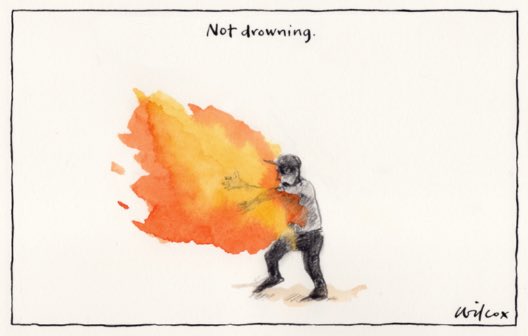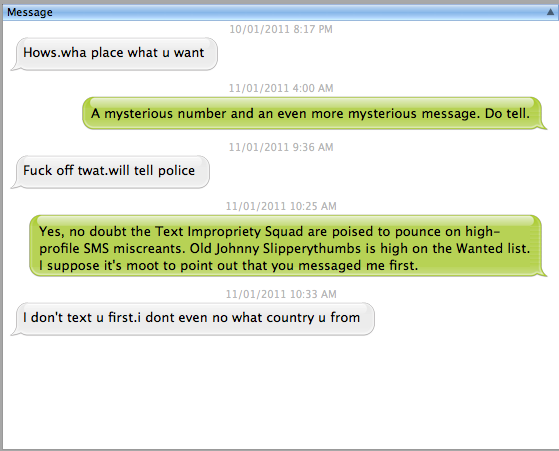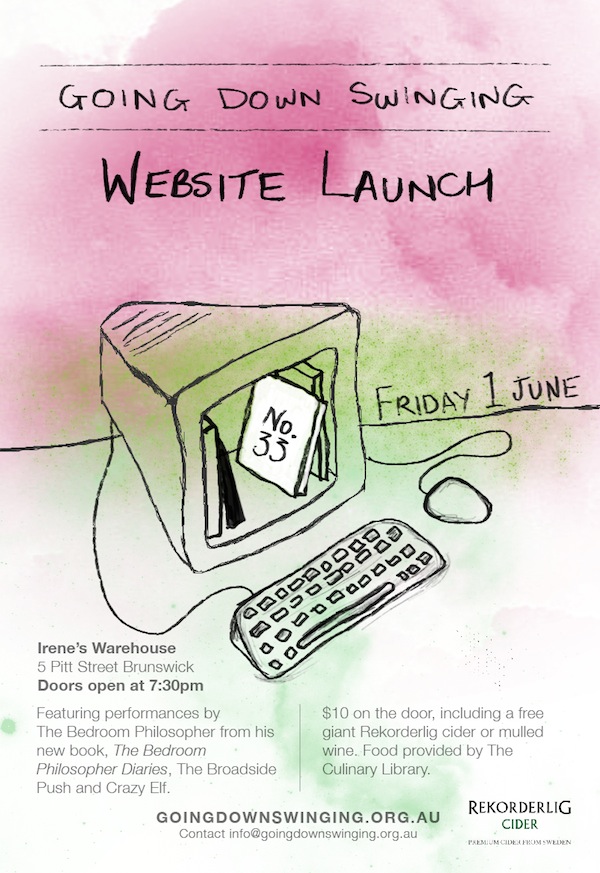No one knows what to do when the lights go out. In the first moment time doesn’t apply, a couple of seconds that could be any duration. We’re left immobile by a room abruptly dark. The next moment we’re passive but thinking, stranded in the absence of explanation, expecting the anomaly to correct itself. Only once a third chunk of time arrives do we accept that this might be longer lasting, and start to think about next moves. But what do you do when illumination can’t ever come back?
Kat Muscat was brilliance, she a deep well of love, and she was my friend. Then she was gone. Click. The two months since have disappeared too, a flicked switch. Hundreds of people still have a hole punched through them, a number so high because of her extravagance. It will remain the best thing about her: the way she threw around affection like love were a Gatsby party, lacking all restraint or discrimination, meaning it fully and fiercely, channelling empathy for everyone regardless of herself. Her absence is impossible. For years we were part of a group of Melbourne writers. Then I was crossing the world to join them at a memorial, still expecting her to be in attendance, waiting inside the door to dish out a hug.
I never wanted this to be an obituary. A posthumous curriculum vitae. I haven’t known what to write, but it wasn’t that. I want to remember why she was extraordinary. I want people to understand it, like when we try to explain the books or films or music that make zealots of us. We can only really communicate how deeply they moved us, not why. But we have the work she left us, and if I don’t try to convey a little of the rest then writing has no point at all.
When I say Kat was extraordinary, this is literal. She was so far ahead of her age that a decade later she was still ahead of her age. You can get hung up on unfairness: when people check out young we lament their potential, the things they were going to do. Kat had gone from writing fiction to editing a national magazine, performed at festivals across Australia, and produced long-form critical social analysis that was entirely comprehensible and piss-funny. She spoke out against repression and ignorance. Her growth into a feminist writer was part of what helped educate me about so many things I’d missed. She backed people who get pushed down, and helped creative people develop. She gave guidance and leadership to people her age or older. Her maturity was the secret ingredient, the cough syrup that gave each Flaming Moe its kick. By barely 25 she’d had a 10-year literary career. It’s not about who she was going to be. She already was.
⟶
I was lucky to watch that trajectory from near the start. I don’t remember how early we published her at Voiceworks, but she joined the staff at 16 and was anyone’s equal. The night before we met I had obliterated myself following some relationship drama, ending up lying across the gate of a Carlton house party, staring into the sky while people stepped over me to come and go. The next day I was running a proofing session: I spent most of it semi-conscious and shiver-sick under a desk. But there was Kat, undersized and quiet but steady in tone, skating through whatever tasks she was set and asking why I clearly wasn’t ok. From that first day I saw her putting other people first, and acting like the grown-up of the pair. She hugged me goodbye, and we adored each other since.
There was this ongoing Children of the Corn joke at Voiceworks: staff had to be under 25, so every issue more of us vanished, sent out to the fields to be made tribute to the arcane gods of youth literature. It could be desperately sad: you’d arrive at a meeting, elated after going to print, and people you’d loved or toiled with or who carried the magazine were suddenly gone. You were left to go on alone. The outlier in the other direction was Kat: veteran at 19, editor at 21, working at the magazine longer than anyone in its history. A third of her life, her whole adulthood informing and travelling in its orbit.
When she went for the top job, Kat asked me to be her referee. It was the shortest possible call. Joe Toohey asked why Kat would be a good choice. I asked if he were fucking kidding. She was Voiceworks: both an example of its best work, and the best actor carrying it out. No one knew more about its potential, its limitations, its frailties and heritage. No one had lived it in her wholehearted way. It was ordained. It had to come to pass.
For me, she was always there. A presence taken for granted in that way we do, even as our lives shift under our feet. There through early years of EdComm, enthused about everything. At her first launches as editor, excited and nervous and wise enough not to be unduly swayed by either. She was there after poetry readings and before shows, sitting in beer gardens or wherever the outdoor smoking was, a lifetime together jammed in doorframes and fire escapes and lintels and staircases and alleyways and wooden picnic tables at events that have blurred together, switching easily between bullshit and perceptiveness as she flicked a flame again and again over the burned-out end of a rollie. No one knows what to do when a light runs out.
There is still no sense to this. A hundred varieties of guilt rolling out like bolts of cloth down a staircase. How you let her down. Whether you’re entitled to this grief or its discussion. I was sometimes a terrible friend, hurting or neglecting her in ways I’ll keep catalogued to the letter. But she would offer smackdown and forgiveness in the same breath – making Kat mad at you was something of an achievement. Between, it was evident how we cared for each other: she loved with such purity and clarity, nothing held back, that generosity she kept extending despite my failings even before I knew most of them existed.
For so many of us Voiceworks was our youth – the path we ended up on, the loves we had, the friends we came out with. Whenever I think of it now I’ll think of her: the late nights and long halls of Ross House, rattling elevators and formica, third-floor sash windows heaved open for clandestine cigarettes and further plotting of how to get onto the roof of Young & Jackson’s; then into the tamed fluorescence of the Wheeler Centre, this monument to modernity where Voiceworks grew up, even if at heart most of us wanted it to stay ramshackle.
Then that Stephen King reference again: three months ago she finally reached Voiceworks majority, the age of passing out into the halls beyond. And almost immediately she was gone. For real this time, not the nostalgic twang of a colleague departed and a small era ending, but something plucking far deeper notes, someone you can never go back to and find again and reminisce about when you were young and reckless and brave and foolish and wonderful.
Kat, all those things were you. Ainslee Meredith has written more ornate sentences, but nothing truer than “so kind and warm and tough and sure”. So tough that I assumed you would get through anything: though the world might rock you and shake you and make you dizzy and sick, you would be one of those who came through each time, shrugging it off, with a half shrug and a half smile and a sigh that this was just the way things were. Someone I knew would be there in the morning when the light came out.
She always had that strength when she held me. Her signature move: the hug that didn’t end at any socially expected time, an envelopment that became part of the point of spending time with her, not a cursory introduction to it. Nothing would be said until that physical exchange was done, a good couple of minutes respected in their own right. Because I was tall and she was not I would put my arms under hers and lift her, hold her hung from me and swaying slightly. Floating hugs, she called them. They were the best thing about us. Trying not to laugh at a slight grunt of complaint if an embrace remained earthbound. There is this line from Michael Ondaatje, on holding his kid: “the hug which collects / all his small bones and his warm neck against me / The thin tough body under the pyjamas / locks to me like a magnet of blood.” That lock, heat churning between human bodies, bones shifting, like holding a bird, fragile in those moments but resilient. When eventually her toes touched down she would open her eyes slowly as if waking from a long sleep and just say, “Hey.” Ready to speak for the first time.
⟶
I have no idea how to reconcile Kat being gone. Not being able to touch or see or hold the only person who could help. There is no sense to grief. This thing felt by all people for all reasons, an intensity that swells and fades with no internal logic, a mysterious erraticism that lends itself to mystical interpretation. Sworn empiricists find themselves murmuring incantations, offering deals to no known force, whispering through tears late at night to someone who by all logic cannot hear. Grief is the manifestation of our brains failing to find sense: looking at a gap where there should never have been one, unable to find someone who we know, we just know, must be there. It’s a logical disconnect, a syntax problem, a 404 error returned. File not found. The whole system hangs on the verge of collapse, unable to reconcile anything it is being told.
I don’t know how to think of her funeral. All these people pouring everything from themselves in an act of collective distance. The abstract centre of our grief now physically present, but still inaccessible. The coffin at the wrong end of a telescope. Religion is wrong, the body is not a shell for discarding. It’s part of us, it is us – our interface with the world outside, the way we’re truly able to be with one another. When we think of our last time with someone, we think of touch, our most vital communication. It’s right there in the meat of us. That was her body I had held to me, a magnet of blood.
So feelings become physical, your own grief played back to you on this shonky corporeal pianola. How else do you explain that feeling in the chest? Sitting in the service trying to isolate it: like one of those dodgy bank jobs where thieves drill chains around an ATM then rip the whole thing out of the wall with a truck. We were an incongruous church full of people giving voice, a howl and a collapse inwards, reduced to masonry as a jagged frame around an absence. Says Derrick Brown, “how can you sleep through this? Brickwork under your fingernails. A bomb shelter sketched onto your skirt that reads: safe. Just safe.”
And she did give one point of sanctuary. Kat would have loved being compared to a bogan ‘90s bank heist. She would have given one of those husky chuckles and carried the joke to the next point of absurdity. Which feelings were Heath Ledger, which were Bryan Brown. You can’t help happiness when you connect with who a person really was. In the swamp of that day, part of me wished beyond anything that she could see the ragged animal response she had the power to drag from us. Not to prove anything or to change it, but just as a sight, a reason to grab your friend’s arm and say “Holy shit, look at that.”
⟶
The thing I will keep looking at: walking into the back room of the old Dante’s restaurant on Gertrude Street, preparing for a Voiceworks launch. Her arms going up, wordless; me lifting her, wordless, her face in my neck, holding on for so long that the rest of the room melted away.
I would send my right arm down the river for one more afternoon in a beer garden, trading stupid jokes in the shade of some desultory suburban vine, switching to her pouch of rollies when the Marlboro Lights ran out. And if I couldn’t have that many words, then the simplest things, the ones that could be whispered directly into an ear in the half-breath between one squeeze and the next: I love you. I miss you. I’m sorry. I will mean those things forever.
⟶
It is four days after the first phone call came through. It is 2am in Birmingham. A pub morphing into a nightclub. Music loud, mind lost. I arrived in my friend’s kitchen that morning to find a dozen drunk Englishmen dressed as wrestlers, due for a cricket match that was already finished. I joined them because I didn’t know what else to do. The truth of losing her had hit the previous night, but only in this bar does practical realisation follow: there will be a funeral. In Australia. Soon. I blankly thumb my phone, hoping something will tell me what to do. There is one flight that will get me home in time. Leaving London in a matter of hours. I’m frozen, not because the choice is hard but because my brain has seized like rusted cogs. Toothpaste selection would be beyond me. Last drinks have been called and eviction is imminent. No one knows what to do when the lights come up.
One of the wrestlers asks what’s wrong. He has a nice face. So I tell him, unburnished. He responds in kind, thinking, no time wasted on embroidered sympathy. Then: “Go,” he nods. “You should definitely go.” You can stay grateful forever to someone you will never see again. I hit the button. There is one seat left. 24 hours later I’m in another bar in Melbourne, getting Kat hugs from our friends.
Three days to start understanding she’s gone, a few scrambled hours to head back towards some trace of her, to be together while we pour out our disbelief on the closest bartop. She would approve of the medium of healing being whisky and dance. She would have been perfect at helping us through this if we had lost anyone else. But there are few whose loss would make us mourn like this. Who would lead to me being lost in high atmosphere, tracking over the Arabian Gulf, the evening dim with dusk and fine cloud. A few ships below send out tiny points of light, fireflies in the fog. Someone is using these as markers to guide a path to safety. We do not know what to do when a light goes out.
I’ve had sad long-haul flights before: blurry hours of duty-free gin and pills and terrible movies through tears they don’t deserve. This is something else, coming home to farewell a friend who has left ahead of time. Fewer drinks, though I may have cried at Frozen. Across the dark bulk of Australia’s continent I loop that Shadow song with the massive chords and the mournful gospel slow-dance. “Your eyes will not close, your tongue barely speaks. But I can still feel you.”
I can, though. The third night after the news, lost to all sense, lying in bed at 4am watching the fullest full moon between the curtains of my friend’s spare room, I could feel her. I could hear her voice in my head – not talking to me, but right there. The sound and tenor and timbre. That half-catch on some of the vowels, that slight husk like fine-grade sandpaper. The weary but half-smiling way she would look at me from beneath hooded eyes and say “Hey, Lemon.” From the middle of the night on the other side of the world I flick through photos like a ritual, memorising every set of her face in its context, knowing it anyway. Then untold time in the near-dark, chest thrumming so hard it might produce a glow to match the earth’s satellite. That night, and through the days that have followed, every time I think of her, I can feel her body pressed to mine, that hug hanging on so tight it feels like she will never let go. I hope she never does.








